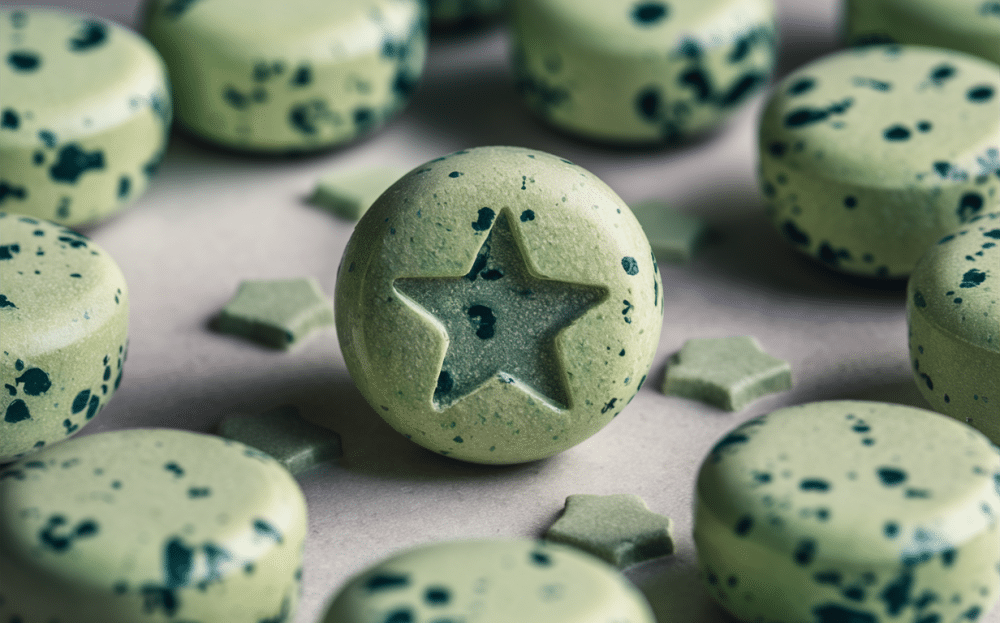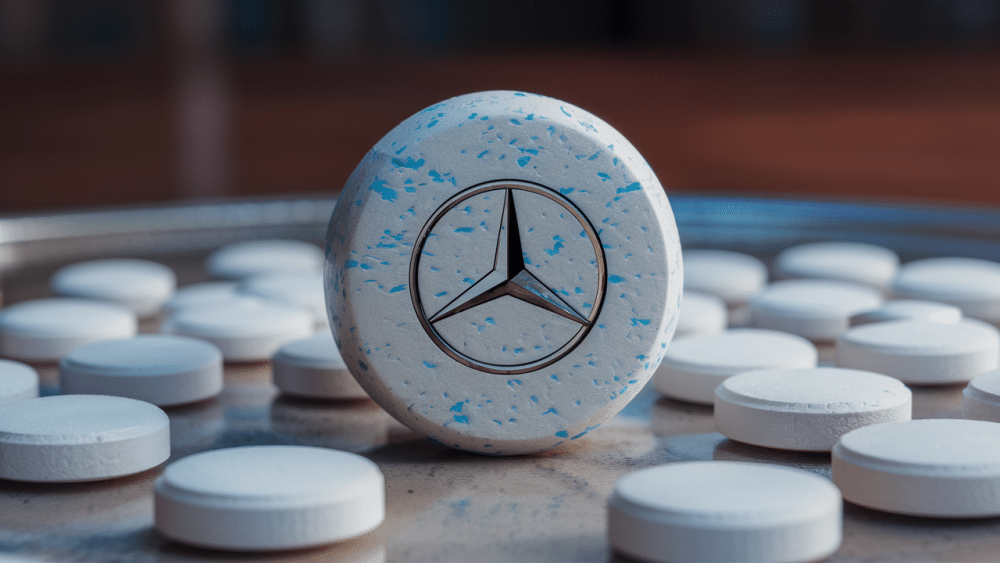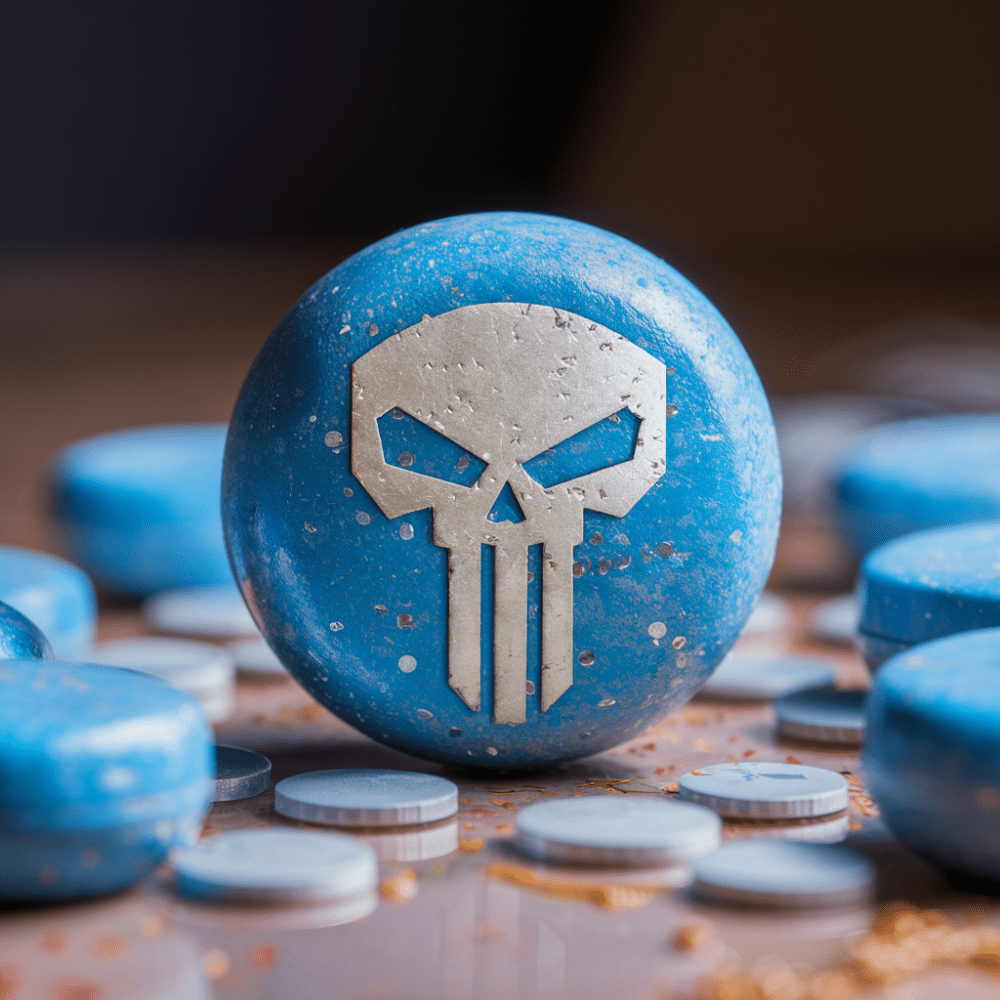The Mitsubishi ecstasy pill, also known as “Mitsubishis,” is a type of ecstasy tablet that has been associated with the Mitsubishi auto logo stamped on it.. The MDMA content of Mitsubishi ecstasy pill tablets can vary, and the amount of MDMA in these tablets is important when considering their effects on the mind and body.
The Mitsubishi ecstasy pill has been found in various shapes and lots of different colors and sizes. The Mitsubishi ecstasy pill is one of the many colored ecstasy pills with designs or logos of Corporations stamped on them, and it is typically taken orally or occasionally crushed up and snorted and even smoked
The appearance and MDMA dosage of ecstasy tablets, including the Mitsubishi pill, can vary, and can be tainted with other drugs as well. There have been reports of large variations in the MDMA dosage of the Mitsubishi pills and other similar ecstasy pills prompting Worldwide warnings about the pills.
What is MDMA?
MDMA (3,4-methylenedioxymethamphetamine, also known as ecstasy) is a synthetic (man-made) drug that causes both hallucinogenic and stimulant effects. The drug was developed in Germany in the early twentieth century as an appetite suppressant, but today’s users consume the drug for its hallucinogenic effects, which they claim heighten their senses and make them feel less inhibited. Users also consume MDMA for its stimulant properties. MDMA generally is sold as a tablet, which is taken orally. MDMA tablets are available in various colors and shapes and generally are imprinted with a logo. Popular logos include smiley faces, clover leaves, cartoon characters, and symbols associated with commercial brands.
https://www.justice.gov/archive/ndic/pubs3/3494/3494p.pdf
MDMA acts as both a stimulant and psychedelic, producing an energizing effect, distortions in time and perception, and enhanced enjoyment of tactile experiences. Euphoria, feelings of closeness, empathy, and sexuality.Although MDMA is known among users as ecstasy, researchers have determined that many ecstasy tablets contain not only MDMA but also a number of other drugs or drug combinations that can be harmful, such as:ethamphetam ine,ketamine, cocaine, cathinone, and caffeine.
What are the Effects of MDMA?
The effects produced by consuming MDMA can last for 4 to 6 hours, depending upon the potency of the tablet. Using the drug can cause confusion, depression, anxiety, sleeplessness, craving for the drug, and paranoia. Use of the drug also may result in muscle tension, involuntary teeth clenching, nausea, blurred vision, tremors, rapid eye movement, sweating, or chills.People who have circulatory problems or heart disease face particular risks because MDMA can increase heart rate and blood pressure. MDMA abusers also risk dehydration, hyperthermia (exceptionally high fever), and heart or kidney failure if they use the drug while physically exerting themselves or in hot environments
https://www.justice.gov/archive/ndic/pubs3/3494/3494p.pdf
What are the Acute Effects of MDMA?
A person may experience the intoxicating effects of MDMA within 45 minutes or so after taking a single dose. Those effects include an enhanced sense of well-being, increased extroversion, emotional warmth, empathy toward others, and a willingness to discuss emotionally-charged memories. In addition, people report enhanced sensory perception as a hallmark of the MDMA experience.
However, MDMA can also cause a number of acute adverse health effects. For example, while fatal overdoses on MDMA are rare, they can potentially be life threatening—with symptoms including high blood pressure (hypertension), faintness, panic attacks, and in severe cases, a loss of consciousness and seizures.
https://nida.nih.gov/publications/research-reports/mdma-ecstasy-abuse/what-are-effects-mdma
In addition, other drugs similar to MDMA, such as MDA or PMA, are often sold as ecstasy, which can lead to overdose and death when the user takes additional doses to obtain the desired effect.
https://www.dea.gov/sites/default/files/2020-06/Ecstasy-MDMA-2020_0.pdf
What is the detox treatment for MDMA?
Like other substance abuse treatment approaches, behavioral interventions are effective in helping a person overcome MDMA dependence. Cognitive behavioral therapy, which allows individuals to identify and change negative thought patterns that may be triggering drug use, may be especially beneficial. The treatment aims to help the patient resolve underlying anxiety and depression while teaching them coping skills to manage stress and other triggers.
Behavioral interventions coupled with support group participation increase the chances for long-term recovery. Renowned experts in the field of medical detox, Gallus Medical Detox Centers achieve superior patient outcomes in a safe, soothing environment.
Although withdrawal symptoms from MDMA are not usually severe, they can be uncomfortable. However, if your history includes frequent large doses of MDMA or use of alcohol or other illicit or prescribed pain medication in addition to MDMA, withdrawal symptoms may be more severe. Undergoing medical detox ensures you remain physically and mentally safe throughout withdrawal. If you or a loved in is need of a MDMA detox contact the experts here at Gallus Medical Detox to get started at 855-683-1772



